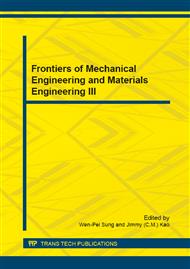p.831
p.835
p.839
p.843
p.847
p.851
p.855
p.859
p.863
IFMOD: Intuitionistic-Based Fuzzy Multi-Objective Decision in Multi-Agent System
Abstract:
Multi-agent system (MAS) contains many intelligent agents, which makes decision for many practical scenarios. However, due to complex decision environment, many data required from sensors are fuzzy. Although a lot of legend solutions address this problem, the decision making result is not very accurate. To solve the problem, we present IFMOD, an algorithm using fuzzy multi-objective decision based on interval-valued intuitionistic fuzzy set. The algorithm adopts iteration way to close the precise value. To make IFMOD algorithm effectively, MAS makes hierarchical structure to complete fuzzy decision. In MAS, most intelligent agents may process the data individually, while other higher intelligent agents make a final decision entirely. The experiment shows that, it is effective for MAS to solve the problem of fuzzy decision in distributed networks.
Info:
Periodical:
Pages:
847-850
Citation:
Online since:
January 2015
Authors:
Price:
Сopyright:
© 2015 Trans Tech Publications Ltd. All Rights Reserved
Share:
Citation:


